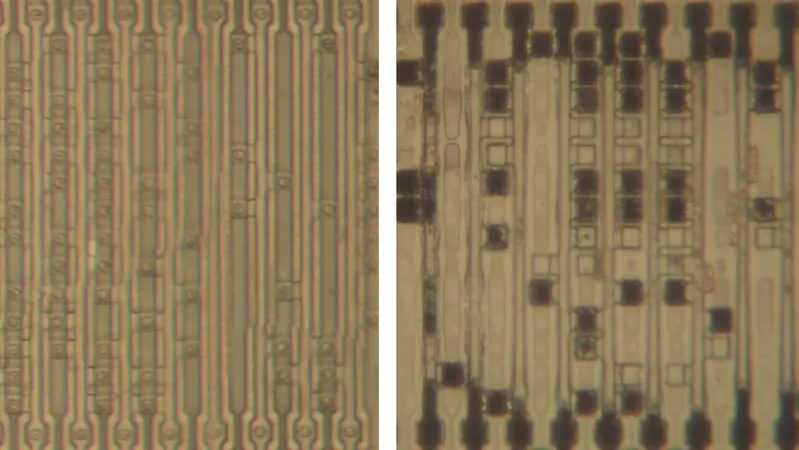
Unveiling the Infamous Pentium FDIV Bug: A Cautionary Tale for Tech Giants!
2024-12-29
Author: Yu
Overview
In the early 1990s, the world of personal computing was undergoing a dramatic transformation. With companies like Intel and AMD fiercely competing for market dominance, public awareness of PCs soared significantly. The groundbreaking introduction of Intel's Pentium chip in 1993 created a huge buzz, marking a pivotal moment in consumer technology. However, behind the sleek marketing campaigns and cutting-edge specs lurked a significant flaw: the infamous FDIV bug.
Discovery of the FDIV Bug
This engineering mishap first reared its head when Dr. Thomas R. Nicely, a mathematician and computer scientist, was conducting a search for prime numbers. His calculations unexpectedly yielded incorrect results, leading to the discovery of a fundamental error in the floating-point division module of the Pentium processor. This revelation sent shockwaves through both the tech community and the general public, exposing vulnerabilities in what many considered the pinnacle of processor technology.
Technical Cause of the Bug
But what exactly caused this hiccup? The Pentium's division operations heavily relied on a lookup table housed within a programmable logic array (PLA) on the chip. The error stemmed from five missing entries in this crucial table, a realization brought to light through rigorous analysis and examination of a decapped Pentium chip. Remarkably, this investigation indicated that Intel's claim regarding a simple transcription error was a red herring; the pattern of the missing entries pointed to a deeper mathematical oversight in the software responsible for creating the lookup table.
Fallout and Response
The fallout from the FDIV bug was nothing short of monumental. While the chip was being lauded for its performance and capabilities, the bug raised serious concerns about the reliability of computing technology and how companies respond to crises. Intel faced immense backlash, not just for the bug itself but for their handling of the situation—an experience that became a case study on the importance of transparency and swift action in crisis management.
Intel's Unprecedented Actions
To add fuel to the fire, Intel eventually took the unusual step of issuing replacements for the affected processors, an unprecedented move that illustrated the gravity of the situation. The company launched extensive marketing campaigns to regain consumer trust and restore its reputation, ultimately emerging from the debacle with valuable lessons about product integrity and quality assurance.
Lessons for the Future
The Pentium FDIV bug serves as a cautionary reminder of the complexities inherent in modern technology. As we navigate an ever-evolving landscape of computing devices, the stakes remain high. The lessons learned from this incident continue to resonate in Silicon Valley and beyond, influencing how tech giants approach product design, testing, and consumer relations. If you want to dive deeper into the intricate relationship between hardware and mathematical algorithms, the detailed investigations surrounding the FDIV bug are a must-read.



 Brasil (PT)
Brasil (PT)
 Canada (EN)
Canada (EN)
 Chile (ES)
Chile (ES)
 Česko (CS)
Česko (CS)
 대한민국 (KO)
대한민국 (KO)
 España (ES)
España (ES)
 France (FR)
France (FR)
 Hong Kong (EN)
Hong Kong (EN)
 Italia (IT)
Italia (IT)
 日本 (JA)
日本 (JA)
 Magyarország (HU)
Magyarország (HU)
 Norge (NO)
Norge (NO)
 Polska (PL)
Polska (PL)
 Schweiz (DE)
Schweiz (DE)
 Singapore (EN)
Singapore (EN)
 Sverige (SV)
Sverige (SV)
 Suomi (FI)
Suomi (FI)
 Türkiye (TR)
Türkiye (TR)
 الإمارات العربية المتحدة (AR)
الإمارات العربية المتحدة (AR)